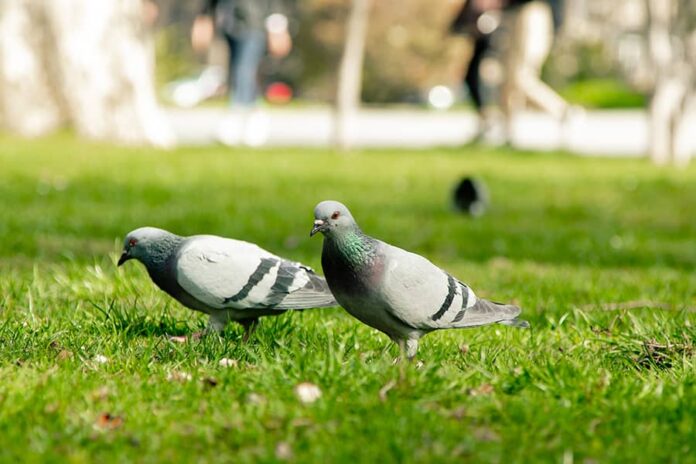The Royal Horticultural Society has warned members of the public that pigeons can be very destructive if they gain access to gardens.
A warning has been issued to anyone with pigeons in their garden this winter.
The Royal Horticultural Society has warned members of the public that pigeons can be very destructive if they gain access to gardens.
The pests cause crop damage and can feed on plants in gardens and allotments. They feed on a wide range of plants but seem particularly keen on the leaves of brassicas including lilacs and peas.
Pigeons tend to feed on winter brassicas when snow or frost makes other vegetation unavailable. In winter, flocks of up to 50 birds can descend on allotments.
They will peck at the leaves and rip off portions, often leaving just the stalks and larger leaf veins. They may also strip buds, leaves and fruits from blackcurrants and other fruit bushes.

Gardeners may not see the pigeons feeding on plants, as they often visit in the early morning.
To ensure pigeons are no longer a hassle in the garden, bird experts at Avian Enterprises shared four “homemade repellents” using smells they “hate” to “deter them”.
They detest peppermint, cayenne pepper, garlic and cinnamon, and so they will surely stay away from gardens that have been spritzed by simple sprays made with them.
Another way to keep pigeons at bay is to put vulnerable garden plants under a net or in a fruit cage. Netting must be taut in order to prevent trapping birds and other animals.
If you aren’t bothered by pigeons then TV presenter and acclaimed British horticulturist Monty Don has recently recommended putting out food to help them survive the winter.
He suggests putting out water and “calorific” foods like bird seed and nuts as well as left-over pastry, bread and rice, fruit, grated cheese and cooked potatoes.
The gardening expert said to not put out salty foods like crisps, salted peanuts and bacon and if in doubt, leave out sunflower seeds and fat-balls for birds.
This can attract smaller birds like robins and blue tits into your garden, as well as other animals, such as squirrels and rats, especially if the food is easily accessible from the ground.
By Grace Piercy from Express

